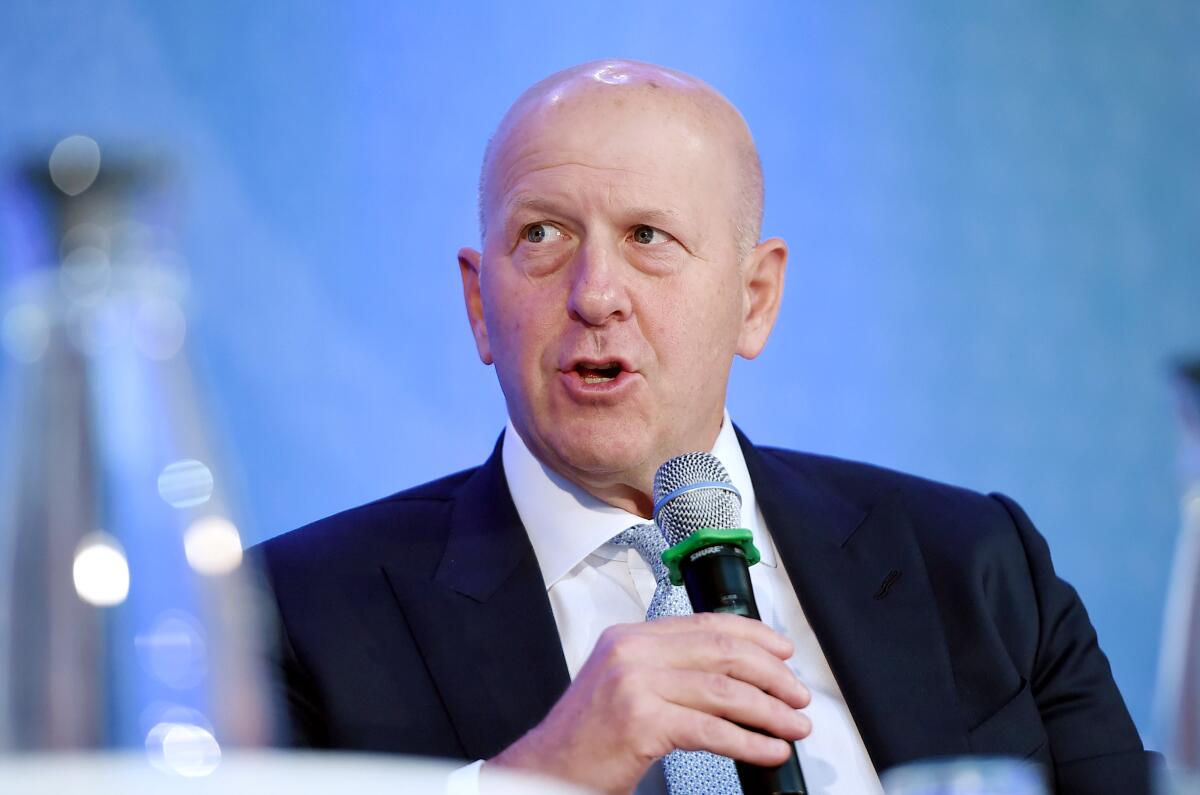Goldman Sachs to insist that companies it takes public have diverse boards

Goldman Sachs has become the first Wall Street bank to declare it will not take companies public in the U.S. and Europe unless they have at least one “diverse” candidate on their board — but failed to include Asia, which has the worst record on gender diversity.
Chief Executive David Solomon on Thursday said diversity on corporate boards was a “very, very important issue,” with evidence showing that companies that made their stock market debut with at least one female director were likely to perform “significantly better” than others.
“Starting on July 1 in the U.S. and Europe, we’re not going to take a company public unless there’s at least one diverse board candidate, with a focus on women,” he told CNBC. “And we’re going to move towards 2021 requesting two.”
Goldman confirmed that the bank planned to expand the policy to other regions “over time,” adding that the majority of initial public offerings conducted by Goldman were in the U.S., Europe, the Middle East and Africa.

MSCI said last December that of 126 companies in its MSCI World index with no female directors, 108 were Japanese and nine were Chinese- or Hong Kong-based. Of the remaining nine companies with all-male boards, five were based in the U.S.
Goldman itself has four women among its 11 directors, but Solomon’s executive team remains more male-dominated than most of its peers, with just eight women on the bank’s 34-person management committee.
That is better than the 13% female representation on Morgan Stanley’s 22-person top team but worse than Citigroup and Bank of America, where women make up 31% of their 16-person management committees. JPMorgan Chase’s 12-person operating committee has an equal number of men and women.
Below management committee level, Solomon increased the proportion of women in the last rounds of partner and managing director promotions, as well as at graduate level.
Ken Bertsch, head of the Council of Institutional Investors, which represents big pension funds in the U.S., welcomed Goldman’s new stance but said many investors wanted to ensure companies went beyond “tokenism.”
“On one hand, Goldman is a little behind the times,” he said. “It is a good step to have at least two or three women on the board.”
Goldman made its decision to insist on diverse candidates for IPO boards after its research showed about 60 companies went public with all-male boards in Europe and the U.S. in the past two years, while another 100 went public with only one female board member.
“We might miss some business, but in the long run, this I think is the best advice for companies that want to drive premium returns for their shareholders over time,” Solomon said.
© The Financial Times Ltd. 2020. All rights reserved. FT and Financial Times are trademarks of the Financial Times Ltd. Not to be redistributed, copied or modified in any way.
More to Read
Inside the business of entertainment
The Wide Shot brings you news, analysis and insights on everything from streaming wars to production — and what it all means for the future.
You may occasionally receive promotional content from the Los Angeles Times.










